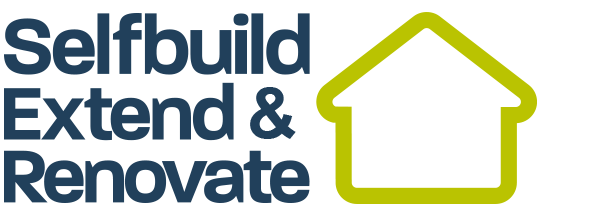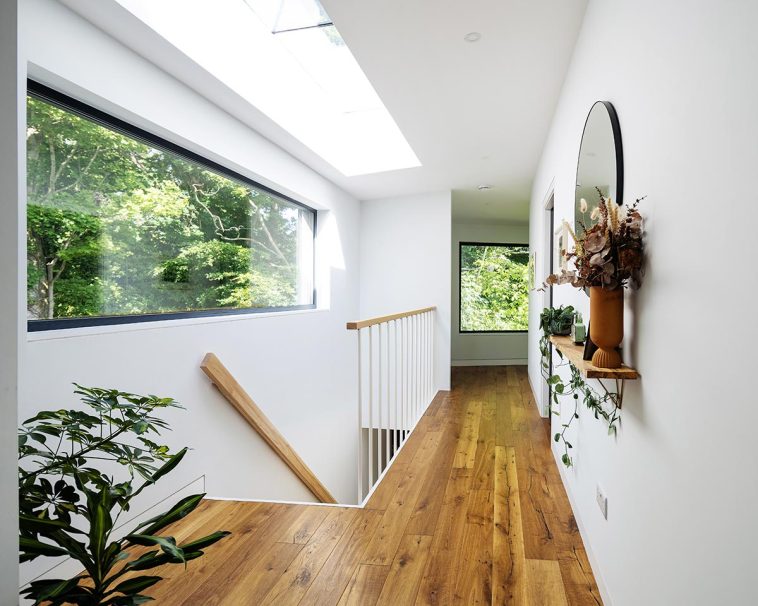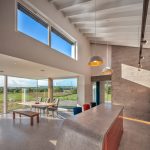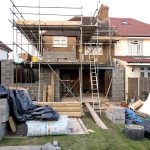How much your upper storey structural floors will cost, from the various types of joists to concrete options.
In this article we cover:
- Cost elements of structural floors
- Variation in types
- Rising order of cost for each
- Cost details of timber structural joists
- Cost details of factory made timber joists
- Cost details of hollowcore floors
The cost of structural floors is influenced by several factors, including material choice, sound insulation, thermal insulation, fire resistance, structural stability and service integration.
It is crucial to have a qualified engineer review the loadings for the specific structure and design the size, depth and makeup of the supports to meet the building regulations.
Cost of upper storey floors
The main factor impacting the cost of flooring in a domestic property is the material used in the structure. In rising order of cost are:
[adrotate banner="58"]
Timber was traditionally the material of choice, and kiln-dried softwood joists spanning between structural walls or steel beams were used.
However, the timber joists had a tendency to shrink and cause squeaking issues over time. To reduce sound transfer, products such as rubber membranes or thick underlays can be installed. Underfloor heating piping is possible with quick drying screeds.
The cost of traditional timber floors has jumped 26 per cent since we did the same analysis three years ago. Note that if you are building your house through a timber frame company, the manufacturer will cost their proprietary systems as a whole.
Factory made timber joists. I Joists are strong, lightweight and can span over six metres without the need for internal wall or beam support. They are also not prone to shrinkage.
Another option is open web joists, which have a wavy metal web centre that allows for the running of services and can achieve unsupported spans of 7.5 meters across a range of depths from 195mm to over 300mm.


Precast concrete floors are very popular with self-builders. Precast hollow core flooring is made of precast concrete slabs with a hollow core, providing an efficient and cost-effective flooring solution. Voids running along the length of each slab reduce the weight. The slabs come in various thicknesses and spans, from 100mm to 300mm. A structural screed and reinforcement mesh is likely to be installed on the top of the slabs to tie the floor together. The screed will incorporate the underfloor heating pipework if used. The cost of precast concrete products has increased by roughly 5.1 per cent in the 12 months to January 2025 in the UK.
Suspended concrete flooring, where a reinforced concrete slab is suspended between steel beams or blocks, provides a durable, fire-resistant flooring.

Key cost notes of upper storey floors
Timber Floors
The cost of timber flooring in the UK varies based on the type of wood used:
- Softwood Flooring (e.g. Pine): Approximately £30 per square metre.
- Hardwood Flooring (e.g. Oak, Maple): Ranges from £35 to £70 per square metre.
Factory-Made Timber Joists
The cost of factory-made timber joists depends on the type of wood:
- Softwood Joists (e.g. Pine, Spruce, Fir): Typically cost between £4 – £10 per linear metre.
- Engineered Wood Joists: These range from £20 to £50 per linear metre.
- I-Joists: Costs range from £15 to £40 per linear metre.
Hollow Core Floors
According to Building.co.uk‘s indicative cost range index, hollow core precast concrete floor planks with structural concrete topping between primary steel beams have increased from 8 per cent to 52 per cent compared to last year’s prices.
For accurate and current pricing, contact local suppliers or contractors who specialise in precast concrete flooring systems.
Please note that these prices are approximate and can vary based on factors such as the quality of materials, supplier pricing and regional variations within the UK. For precise estimates, contact your local suppliers or contractors.




